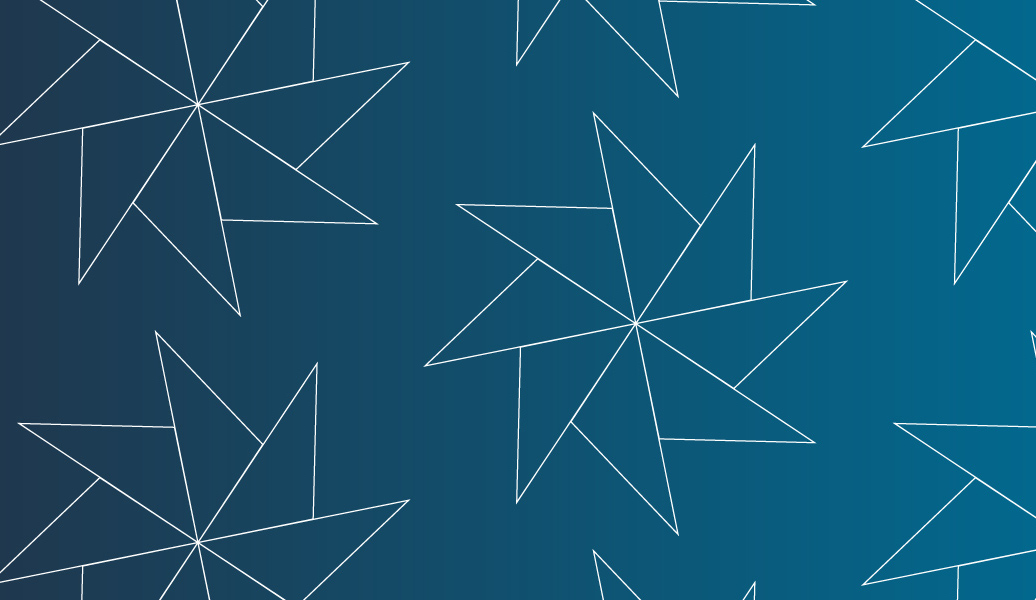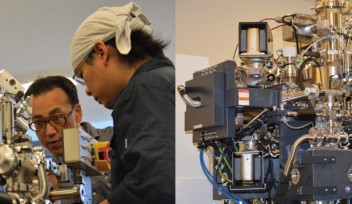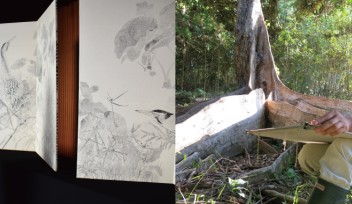-Report- MIRAI Global Challenges Winter School 2024

Reporter: Oscar Juez
PhD candidate, Plant Epigenetics Unit, OIST
Abstract
Between November 17-22, 2024, I had the privilege of participating in two transformative events hosted at the Stockholm School of Economics: the MIRAI Global Challenges Winter School, organized by the European Institute of Japanese Studies (EIJS), and the Scandinavia Japan Sasakawa Foundation (SJSF) Japanese Studies Networking Conference. These events brought together early-career researchers, industry leaders, and diplomats to explore cross-cultural collaboration, with a focus on sustainable development, innovation, and strengthening ties between Japan and Scandinavia. The program fostered meaningful connections, intellectual growth, and a renewed commitment to advancing global challenges through interdisciplinary approaches.
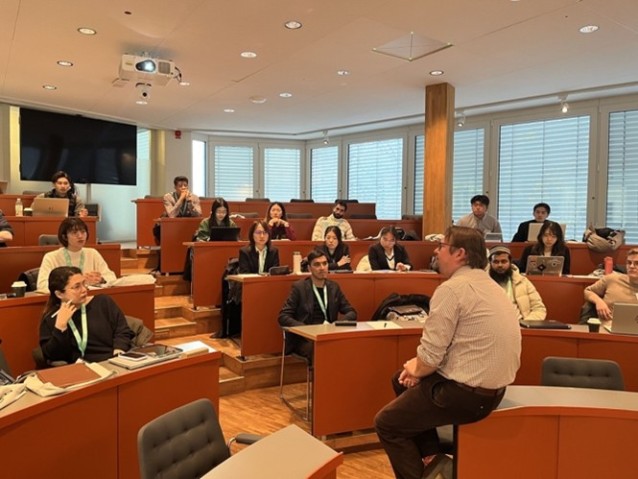
|
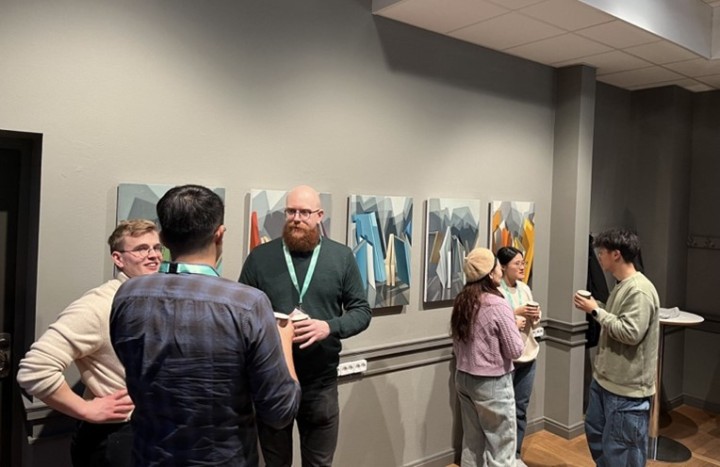
|
Warm welcome to snowy Stockholm:
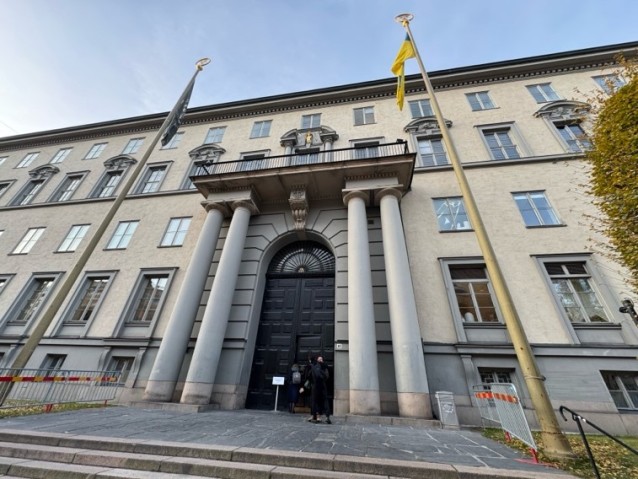
|
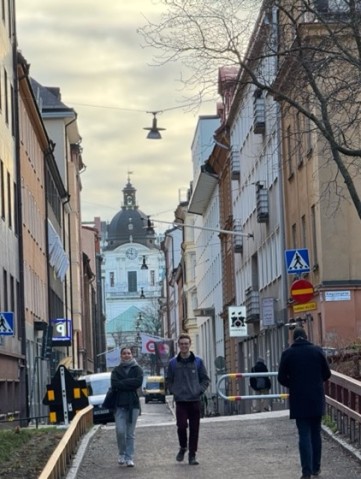
|

|
The program in brief:
PART I: MIRAI Global Challenges Winter School (November 17-20, 2024)
November 17, Sunday: Welcome reception
November 18, Monday: Sessions highlights
EU-Japan Collaboration by Patrik Ström on strategic partnership
Japanese Investments in EU and Japan by Richard Nakamura on the EPA’s impact
Mitsubishi Presentation by Clara Baker on sustainability in business
November 19, Tuesday: Innovation and culture highlights
Osaka EXPO 2025 by Business Sweden on sustainability goals
Green Economy Transition by Peter Popovics on sustainable financing
Sweden-Japan Collaboration by Yuki Yoshida and Jenny Egermark
November 20, Wednesday: Discussions and reflection highlights
Societal Challenges by Åsa Malmström Rognes
Innovation Policy by Malin Petersen
Lost in Translation? by Eva Liias on cross-cultural management

PART II: SJSF Japanese Studies Networking Conference (November 20-22, 2024)
November 21, Thursday: Sessions highlights
EU-Japan FTA by Ari Kokko
Japanese Studies in the Nordics by Marie Söderberg
Breakout sessions on digitalization, green economy, and cultural diplomacy.
Guided tour and formal dinner at the National Museum.
November 22, Friday: Final day highlights
Company Visit to Ericsson, on connectivity and sustainability
Roundtable Discussion moderated by Patrik on future directions
Farewell Dinner at Restaurant TAK.

Lots of thought-provoking presentations and discussions

Reflections on the MIRAI Winter School

The Winter School combined a robust academic framework with practical insights. Each session offered a unique lens into the dynamics of EU-Japan collaboration, ranging from economic policies to cultural diplomacy. A particularly memorable lecture was Patrik Ström’s discussion on the intricate interplay between EU-Japan relations. His ability to weave macroeconomic theories into practical examples left a lasting impression in us.
Prof. Nakamura’s talk on Japanese investments in the EU and the EPA provided a deep dive into the economic architecture that underpins this partnership. I realized how these macroeconomic frameworks influence funding priorities, scientific mobility, and collaborative opportunities.
Interdisciplinary interaction
The dynamic nature of the discussions stood out. Impromptu conversation during coffee breaks, for example on digitalization in cultural industries. Discussion about the intersection of digital art and plant biology sparked an idea about incorporating computational visualization into my research. This experience highlighted the value of interdisciplinary exchanges, which often lead to important insights.
Furthermore, I built on my ability to articulate my work to a non-specialist audience. While presenting my discussing my reseach on plant epigenetics, I found myself focusing on storytelling, explaining the “why” behind the work rather than going into the technical details. This approach sparked discussions and allowed me to engage in broader societal interests in my research area.
Industry engagement and cultural diplomacy
The company visits and presentations added an applied dimension to the program. At the Ericsson visit, their strategy for addressing global connectivity challenges stood out as a poignant reminder of the role that large organizations play in shaping the future. Similarly, the Mitsubishi presentation left me with understanding of the importance of corporate diplomacy and sustainability as a business imperative.
Diplomatic infused the program with cultural richness. Yuki Yoshida’s talk on Sweden-Japan collaboration was especially enlightening, revealing the particularities of cross-cultural links. The navigation of linguistic and cultural challenges in diplomacy mirrored my own in cross-disciplinary research communication, reinforcing the value of adaptability.
Gains from the program
The Winter School was deeply enriching, leaving me with a wealth of professional and personal takeaways. One of the most significant gains was the opportunity to immerse myself in a global dialogue that transcended academic silos. I left the program with a stronger ability to communicate the broader implications of my work and newfound confidence in engaging with individuals from diverse professional backgrounds.
On a personal level, these experiences cultivated a deeper sense of purpose. As I stood amid a diverse group of researchers, I was reminded of the collective responsibility we share to address pressing global challenges. Moments like this underscored the importance of fostering global networks and leveraging them for the greater good.

Acknowledgment
I thank the European Institute of Japanese Studies and the Kyushu University Stockholm Liaison Office for orchestrating such an intellectually stimulating event. My gratitude extends to Prof. Patrik Ström for his visionary leadership and dedication to fostering collaborations.
A special thank you to the Sasakawa Foundation and OIST for supporting my participation, and my fellow participants for their insights and camaraderie, which made this journey unforgettable.









